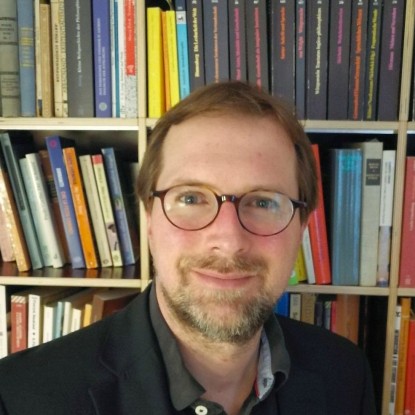The conference has ended. Thanks to all speakers, partners and attendees for making this a successful event!
As every empirical field of research, discourse studies are confronted with research data. Scholars in discourse studies need to come to terms with methodological questions on how to detect, collect, generate, categorise, analyse, interpret and critically reflect data within their research process. It is not only in the course of quantitative methods that discourse researchers have to deal with these aspects: qualitative, text analytical approaches, historical or social science approaches might find it clarifying to make explicit a previous understanding of how the communicative units they deal with are defined. In each case, tallying data alone is of course not discourse analysis, but merely an intermediate step. Consequently, the conference is not only about data computing, but on the status and function of data in all related approaches to discourse.
We take a datum to mean a phenomenon interpreted as a sign, which in the course of a research process is extracted from a given context and recontextualised. Of course, depending on the disciplinary context and research strategy, one needs to first clarify what kind of relation may be assumed between (mostly linguistic) datum and discourse, and which methodological possibilities and restrictions arise as a result. Possibly, some aspects of data management will always meet the same requirements – and are likely to be standardised – while many other aspects remain specific to certain research paradigms. Accordingly, the role, handling and understanding of data in discourse research is discussed controversially in various scientific disciplines. Inspired by this ongoing debate, the conference will focus on the following topics:
- What is the status of data in the humanities and social science research of our time?
- How has data, its encoding and markup, changed the way discourse studies perceive their subject?
- Does data driven discourse research change its role in society?
- How does data impact scientific understanding and what is their role in epistemological processes?
- What is the role of data in field work between experience, encounter, and interaction?
- What ethical implications arise in handling research data?
- In what direction will (and should) discourse research develop and what role will data play in it?
This conference aims to bring together scholars from various disciplines and various research paradigms to discuss standards and strategies of handling research data in discourse analysis which might need to be established across disciplines and across various research paradigms as corpus linguistics, data computing, ethnographic field work, text analysis, surveys, as well as mixed method approaches. We address scholars from computer science, educational studies, history, linguistics, literary studies, philosophy, political science and sociology.
“Data in Discourse Analysis” will be the kick-off conference for the interdisciplinary, international MA program “Data and Discourse Studies”, which will start in the winter term 2019/20 at the department of history and social sciences at TU Darmstadt.
Conference Programme
Tuesday, February 18th 2020
Data in Discourse – Terms and Theories
Chair: Andrea Rapp
9.00 Opening Remarks
9.30 Lou Burnard (TEI, Humanities Computing, Oxford/Paris)
Language as Data in the Humanities Abstract (opens in new tab)
10.30 COFFEE BREAK
11.00 Geoffrey Rockwell (Philosophy/Humanities Computing, Alberta, Canada)
Data, Discourse and Philosophy Slides (opens in new tab)
12.00 Thomas Stäcker (Digital Philology/Library Director, ULB Darmstadt, Germany)
The Digital Edition as a Data Resource Abstract (opens in new tab) and slides (opens in new tab)
13.00 LUNCH BREAK
Approaching Data in Discourse
Chair: Wolfgang Klein
14.00 Tony McEnery (Linguistics, Lancaster, UK)
Data and Corpora Slides (opens in new tab)
15.00 Nancy Ide (Computer Science, New York, USA)
Data and Annotation: The Impact of Big Data on Discourse Annotation Abstract (opens in new tab) and slides (opens in new tab)
16.00 COFFEE BREAK
16.30 Evelyn Gius (Literary Studies, Hamburg, Germany)
Data and Annotation in Literary Studies Abstract (opens in new tab) and slides (opens in new tab)
17.30 Panel Discussion: “Data, Discourse, Fieldwork”
Chair: Jens Steffek
- Audrey Alejandro (Political Science, London, UK)
- Nele Kortendiek (Political Science, Friedrichshafen, Germany)
- Claudia Mitchell (Educational Research, Montreal, Canada)
19.00 EVENING RECEPTION
Wednesday, February 19th 2020
Data Visualisation
Chair: Ruth Mell
9.00 Moacir P. de Sá Pereira (Literary Studies, New York, USA)
Data Visualisation in Literature Studies Abstract (opens in new tab)
10.00 Noah Bubenhofer (Linguistics, Zurich, Switzerland)
Visual Linguistics: Fundamentals of Visualizing Language Data Abstract (opens in new tab) and slides
11.00 COFFEE BREAK
Making Sense of Domain Specific Data
Chair: Sabine Bartsch
11.30 Marina Bondi (Linguistics, Modena, Italy):
Linguistic Data and Domain Specific Language or: How specific is specific Abstract (opens in new tab) and slides
12:30 LUNCH BREAK
13.30 Marek Fuchs (Sociology, Darmstadt, Germany)
Data and Society
14.30 Paul Baker (Linguistics, Lancaster, UK):
Linguistic Data and Social Groups Slides (opens in new tab)
15.30 COFFEE BREAK
Chair: Ana Schenk
16.00 Felicitas Macgilchrist (Educational Research, Göttingen, Germany)
Data and Education Abstract (opens in new tab) and slides (opens in new tab)
17.00 Jens Zinn (Sociology, Melbourne, Australia)
Contested Knowledge -Contested Meaning: The Mutual Constitution of Data and Risk Abstract (opens in new tab) and slides
19.30 CONFERENCE DINNER
Thursday, February 20th 2020
Chair: Nina Janich
9.00 John Flowerdew (Linguistics, Lancaster, UK)
Linguistic Data in Academic Discourse Slides (opens in new tab)
10.00 Silke Schwandt (History, Bielefeld, Germany)
Data and Historical Discourse Abstract (opens in new tab)
11.00 COFFEE BREAK
11.30 Wolf Schünemann (Political Science, Hildesheim, Germany)
Data and Discourse around Europe Abstract (opens in new tab) and slides (opens in new tab)
Chair: Marcus Müller
12.30 Round Table: What’s next in Discourse Analysis?
14.00 END OF THE CONFERENCE
We have made reservations for hotel room allocations in different hotels for you. Darmstadt offers several hotels in a central location with a good connection to the conference venue by public transport.
By Plane
Flughafen Frankfurt Rhein Main (FRA) – Darmstadt Hauptbahnhof / Central Station or Darmstadt Welcome Hotel
If travelling from abroad, Darmstadt is most conveniently reached via Frankfurt International Airport (FRA) located 30 minutes north of Darmstadt.
The quickest and most convenient connection from the airport to the city center, e.g. to Darmstadt Hauptbahnhof (HBF) / Central Station or Luisenplatz, is the so-called AIRLINER bus shuttle service. There are direct connections to Darmstadt at least every hour, during busy times the service runs every 30 minutes. Guests who are staying at the Welcome Hotel can take the AIRLINER until the final stop “Convention center (Kongresszentrum)”. The hotel is right across the bus stop.
A printable version of the AIRLINER-timetable can be downloaded as a pdf-file (opens in new tab).
By train
Alternatively, the train service of Deutsche Bahn (DB) offers numerous connections from Frankfurt Airport to Darmstadt Central Station. Please ask for local information. Please note that tickets have to be bought before boarding the train.
Darmstadt Hauptbahnhof (main central station) to Welcome Hotel (bus stop “Schloss”)
To get from Darmstadt Central Station to the Welcome Hotel, you can, inter alia, take the tram line 3 towards “Lichtenbergschule” or the local bus line K towards “Lichtwiese/ Mensa”, then get off at the bus stop “Schloss”. The hotel is only a 3 minutes’ walk away. Continue on Schloßgraben/ B26, then turn right onto Karolinenplatz 5.
Darmstadt Hauptbahnhof to the conference venue (bus stop “Fasanerie”)
From Darmstadt Hauptbahnhof: To get from Darmstadt Hauptbahnhof to the conference venue please take the local city bus line F/U (towards Oberwaldhaus or Rödermark-Urberach Bahnhof) which takes you directly to the conference venue in approx. 20 minutes. Tickets can be bought from the driver. Get off at stop “Fasanerie”, which is directly in front of the conference venue.
From Welcome Hotel: From the bus stop “Schloss”, you also can take bus line F/U (towards Darmstadt Oberwaldhaus or Rödermark-Urberach Bahnhof) to get off at “Fasanerie”.
The F/U bus line runs every 15 minutes, after 9 pm every 30 minutes. For information about the departure times check RMV.





